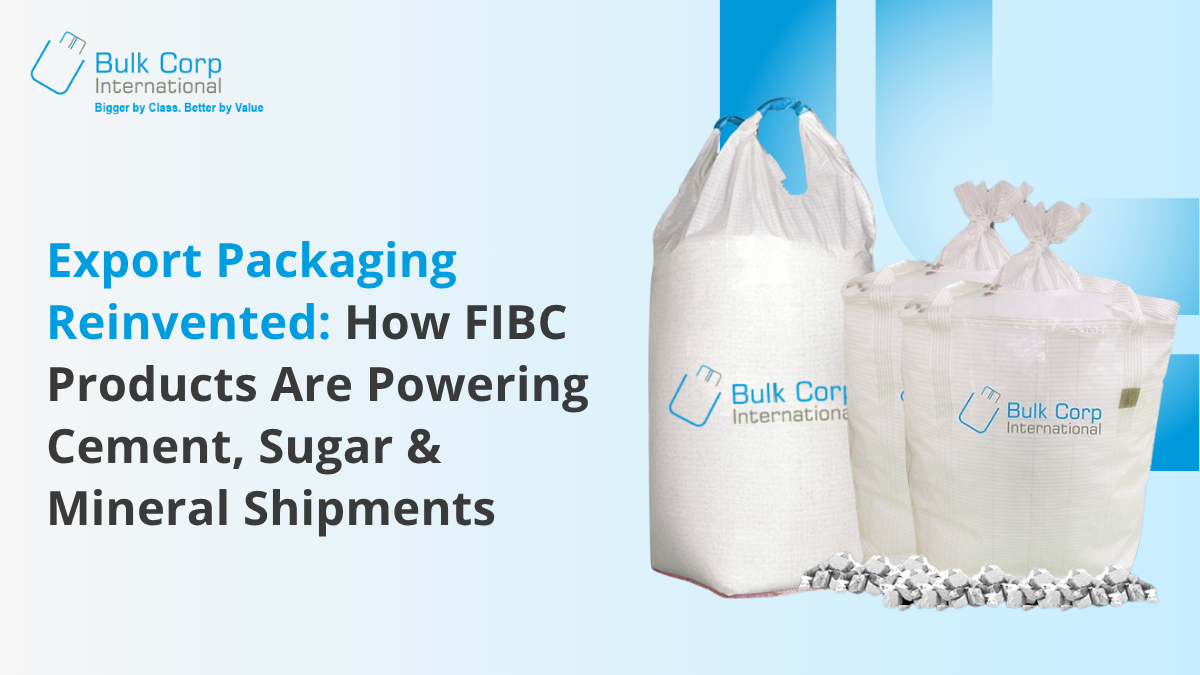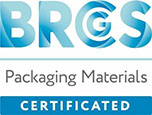Export Packaging Reinvented: How FIBC Products Are Powering Cement, Sugar & Mineral Shipments

In the modern global economy, the ability to ship products efficiently, securely, and sustainably is a major competitive advantage. Export-driven industries such as cement, sugar, and minerals face numerous challenges — from moisture exposure and material spillage to weight constraints and environmental concerns. Amidst these logistical complexities, FIBC bags (Flexible Intermediate Bulk Containers) have emerged as a revolutionary packaging solution, offering unmatched durability, flexibility, and efficiency.
With global supply chains becoming more sophisticated and customer demands increasing, FIBC products are no longer a luxury — they are a necessity for industries that deal with bulk materials. In this article, we explore how FIBC bags for all industries — particularly cement, sugar, and mineral exporters — are redefining packaging and transport standards.
Understanding the Power of FIBC Bags
FIBC bags, often referred to as large bags, jumbo bags, or bulk bags, are constructed from woven polypropylene fabric and are intended for the bulk storage and transportation of dry, flowable goods. Their popularity lies in their versatility, as they can carry anything from cement and sugar to chemicals, grains, and minerals.
The construction of FIBC products allows them to handle weights ranging from 500 kg to over 2000 kg. These bags are customizable in terms of size, coating, liners, filling/discharge options, and safety factors, making them ideal for a wide range of industrial applications.
Why are FIBC Products Ideal for Export Packaging?
Exporting bulk materials across continents requires packaging that can withstand rough handling, changes in temperature and humidity, long transit times, and compliance with international shipping regulations. Here’s why FIBC products excel in this space:
1. High Strength and Durability
FIBC bags are made using high-tensile strength polypropylene fabrics, making them suitable for carrying heavy, dense materials like cement, limestone, and metallic ores without tearing or deformation. Their strong seams and optional reinforcement offer superior durability during loading, unloading, and stacking.
2. Moisture and Contamination Protection
Materials such as sugar and minerals are sensitive to moisture, which can degrade product quality during shipment. FIBC bags can be coated and fitted with inner liners (such as polyethylene or aluminum foil) to provide excellent moisture, dust, and UV protection.
3. Space and Cost Efficiency
Compared to rigid containers or drums, FIBC bags require less storage space and offer a better weight-to-volume ratio. They’re lightweight, collapsible when empty, and reduce shipping costs due to optimal space utilization in containers or trucks.
4. Customization for Industry-Specific Needs
From one-loop and two-loop bags for easy crane or forklift handling to baffle bags for improved shape retention and stacking efficiency, FIBC bags are available in many configurations to meet the specific needs of each exporting industry.
FIBC Bags for Cement Exports: Meeting the Heavy-Duty Challenge
Cement is a dense and abrasive material, making it a tough candidate for bulk packaging. Yet, FIBC bags offer an effective solution for cement exporters:
- Dust-Free Filling & Discharge: FIBC bags can be fitted with spouts and valves to allow clean and controlled filling and discharge, minimizing product loss.
- UV-Stabilized Packaging: For cement stored outdoors during transit, UV-resistant FIBCs ensure protection against sunlight degradation.
- Anti-Leak Features: With optional sift-proof seams and liners, these bags prevent leakage and maintain cement quality.
As a result, many cement exporters have switched from traditional paper sacks to bulk bags, significantly improving operational efficiency and reducing packaging waste.
FIBC Bags for Sugar Exports: Keeping Sweetness Intact
Sugar is highly hygroscopic, meaning it absorbs moisture easily — a trait that poses a major challenge during shipping. Here’s how FIBC products cater to this sensitive material:
- Moisture-Resistant Liners: Polyethylene inner liners create a barrier between the sugar and external humidity.
- Food-Grade Certification: FIBCs used for sugar are produced in cleanroom environments and comply with international food-grade standards.
- Tamper-Proof Sealing: These bags can be sealed with tamper-evident closures to ensure product integrity throughout the export journey.
FIBC bags for all industries provide hygienic practices, safety, and compliance whether exporting refined white sugar or raw cane sugar.
FIBC Bags for Mineral Exports: Handling Heavy and Abrasive Materials
From quartz and copper concentrates to limestone and barite, mineral exporters deal with materials that are coarse, abrasive, and heavy. For this industry, FIBC bags offer unparalleled handling efficiency:
- Heavy Load Bearing Capacity: Custom FIBCs can carry over 2000 kg, suitable for dense mineral cargo.
- Abrasion-Resistant Fabric: The rough texture of rocks and minerals is not a problem for premium woven polypropylene.
- Lifting Versatility: Available in cross-corner loop, tunnel loop, or sleeve lift designs to accommodate cranes and forklifts.
Additionally, FIBC bags for mineral exports are recyclable, aligning with the sustainability goals of environmentally conscious mining and logistics companies.
Sustainability Advantage of FIBC Bags
As global industries move toward more sustainable packaging solutions, FIBC products offer multiple environmental benefits:
- Recyclable Materials: Made from 100% polypropylene, most FIBCs can be recycled and reused when properly handled.
- Reduced Carbon Footprint: Their lightweight nature reduces fuel consumption during transportation.
- Lower Packaging Waste: Unlike single-use paper or plastic bags, FIBC bags are reusable multiple times before end-of-life disposal.
This makes FIBCs an eco-conscious choice for bulk exports — an important consideration for global buyers and regulators alike.
Applications Beyond Cement, Sugar & Minerals
While the focus of this article is on heavy-duty industries, it’s worth noting that FIBC bags for all industries are used across:
- Agriculture (for grains, seeds, and fertilizers)
- Chemicals
- Construction materials
- Food and beverages
- Petrochemicals and plastics
This cross-sector utility proves the versatility and adaptability of FIBC products in modern global trade.
Conclusion
In a time when global trade demands greater efficiency, sustainability, and resilience, FIBC bags stand out as a powerful packaging solution. For exporters of cement, sugar, and minerals, these bags offer the strength, flexibility, and protective features needed to ensure safe, cost-effective, and compliant transportation.
Whether you’re a manufacturer, exporter, or distributor, it’s time to upgrade your packaging strategy with innovative bulk bag solutions.
Take Your Export Packaging to the Next Level
Don’t let outdated packaging hold back your logistics performance. Discover how Bulk Corp, a leading manufacturer and exporter of premium FIBC products, can help you streamline operations, reduce costs, and protect your cargo from source to destination. Choose from a wide range of customizable bulk bags crafted for diverse industrial needs.
Contact Bulk Corp today to request a quote or discuss your specific export packaging requirements!





